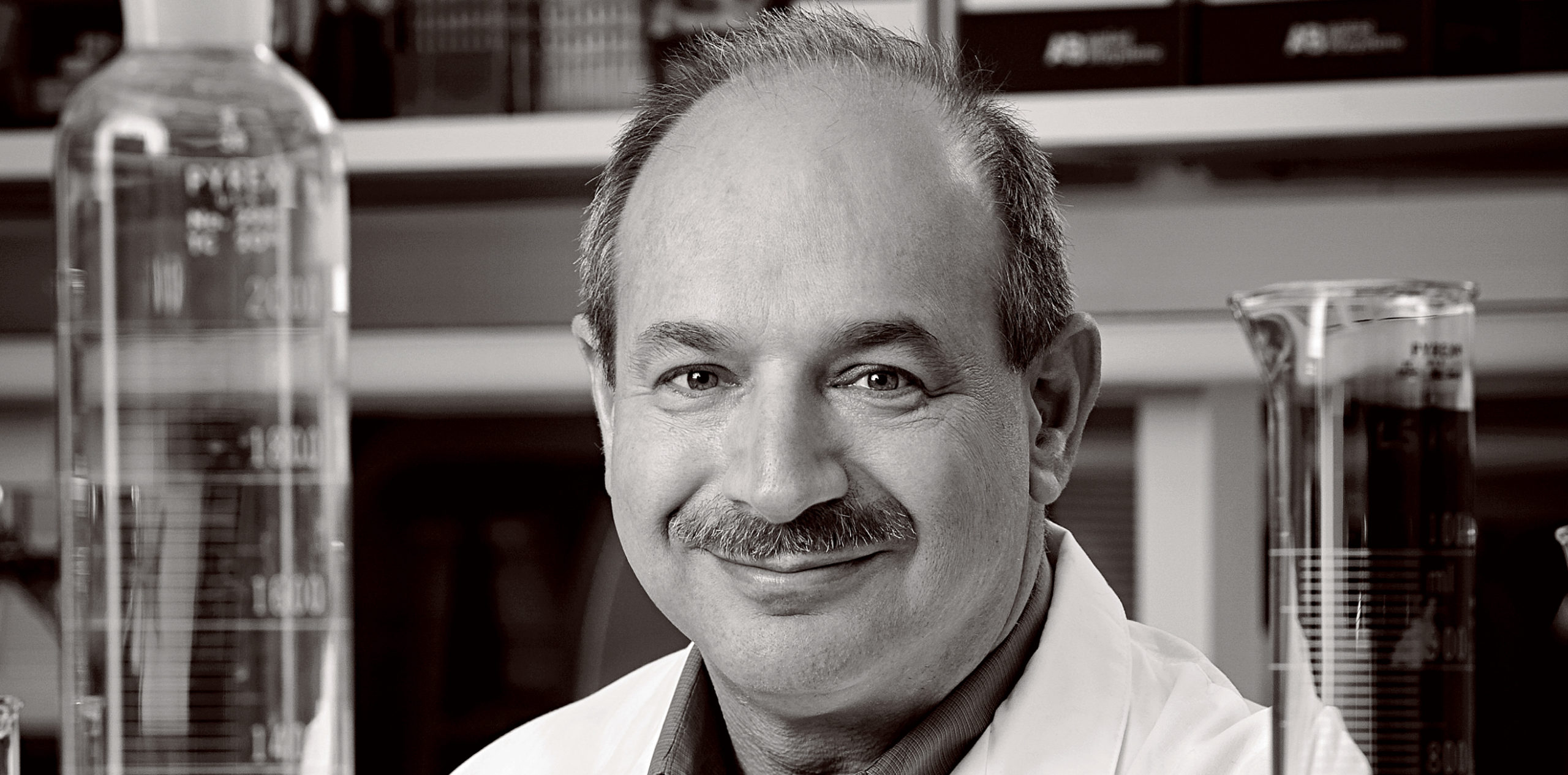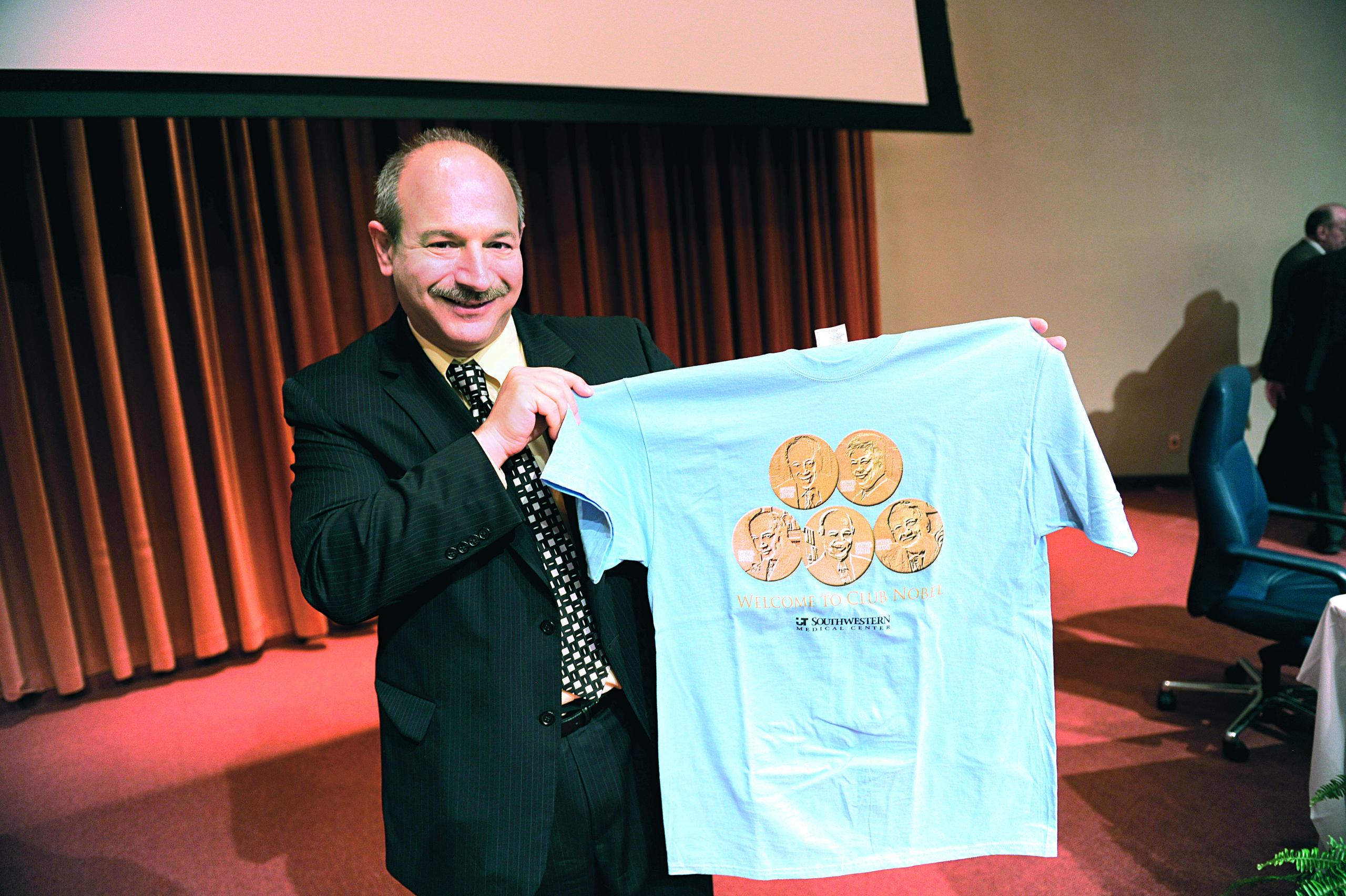
“Bleary-eyed, I looked at my cellphone to see if there was any email. There was a message – just one: The subject line seemed to be ‘Nobel Prize,’” recalled Bruce Beutler, MD, Director of the Center for the Genetics of Host Defense.
He opened the email and read the first lines of a message from Göran Hansson.
Dear Dr Beutler,
I have good news for you. The Nobel Assembly has today decided to award you the Nobel Prize in Physiology or Medicine for 2011. You will share the Prize with Drs Jules Hoffmann and Ralph Steinman.
Congratulations!
The award was divided by the jury, with one half going jointly to Dr. Beutler and Jules A. Hoffmann, PhD, “for their discoveries concerning the activation of innate immunity” and the other half to Ralph M., MD, “for his discovery of the dendritic cell and its role in adaptive immunity.”
UT Southwestern could now lay claim to its fifth Nobel Laureate. Scientists had long been searching for the gatekeepers of the immune response by which man and other animals defend themselves against attack by bacteria and other microorganisms.
My congratulations to Bruce for a magnificent achievement – not winning the Nobel Prize, but making a discovery that will have an enormous impact on our understanding of biology and medicine.
Michael S. Brown, M.D., Nobel Laureate
In 2000, Dr. Beutler left UT Southwestern to join The Scripps Research Institute in La Jolla, California, where his father served on the faculty. In September 2011, he announced his return to UT Southwestern.
I think there are two things that are a great credit to UT Southwestern. One is the quality of research that has gone on and continues to go on here and, secondly, that Dr. Beutler has come back to UT Southwestern for this next stage of his career.
William T. Solomon, Southwestern Medical Foundation Past Chairman
“It’s important that we understand exactly how immunity operates, and there were some profound mysteries about immunity that persisted until just very recently,” Dr. Beutler said. “With the new Center for the Genetics of Host Defense, I’m looking forward to continuing the work that we started so many years ago at UT Southwestern.”
The UT Southwestern community held a mid-December celebration of Dr. Beutler’s triumphant return to the medical school. “We welcome Bruce back not for the work he has done in the past, as proud as we are of that, but for the work we know he’s going to do in the future,” Dr. Podolsky said.
During the welcome-home event, the medical school’s Laureates received T-shirts adorned with five Nobel-like emblems in which the face of Alfred Nobel was replaced by UT Southwestern’s prizewinners.

“Just a week ago when last I saw Bruce, he was resplendent in tuxedo, tails, white tie, patent leather shoes … and he was in the company of the king and queen in a grand hall. He returns here to Texas and we give him a T-shirt,” Dr. J. Gregory Fitz joked.